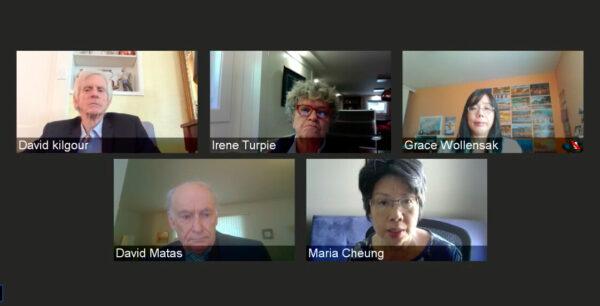Human rights advocates are calling on MPs to pass a Senate bill that makes it a crime for Canadians to get organ transplants abroad using organs extracted without the donors’ consent, and would ban those complicit in organ trafficking from entering Canada.
“[Of] the hundred or two hundred ... other countries in the world ... there’s only one on the face of the earth today that is doing this horrendous crime against humanity,” Kilgour said.
Troubling Parliament Procedures
Bill S-204 passed unanimously in the Senate on May 6, and was tabled for the first reading in the House of Commons on May 10 by Conservative MP Garnett Genuis.However, Matas worries that a possible fall federal election would dissolve the current Parliament before there’s a chance for the bill to become law.
Similar legislation against organ transplant abuse has been previously proposed in the Parliament, including by Liberal MP Borys Wrzesnewskyj in 2008, Liberal MP Irwin Cotler in 2013, and Conservative Sen. Salma Ataullahjan and Genuis in 2017. Although the bills had the support of all parties, they didn’t get passed into law before the parliamentary session was dissolved.

“This manner of proceeding is both a tragedy and a farce. It is a tragedy for those being killed for their organs and their families, [and] the behaviour of Parliament is a farce,” Matas said.
‘Hugely Profitable Enterprise’
Since the report by Kilgour and Matas came out, China’s organ harvesting has expanded from targeting Falun Gong adherents on a large scale to also claiming other victims in large numbers, including Uyghur Muslims.“There are countless numbers of Chinese citizens that are culled out of the herd of people who are have been kept alive and fed and watered, just waiting for a computer selection matching their tissues with somebody from a foreign country that has the money to pay $65,000 for a kidney,” Clive Ansley, lawyer and member of the ETAC Canadian Committee, said at the webinar.
Matas said China’s organ trade has been a “hugely profitable enterprise,” generating an estimated $6 billion to $7 billion revenue for Chinese hospitals, medical personnel, pilots who transported the organs, and brokers who solicit patients in countries like Canada.
International Response
In 2013, NGO group Doctors Against Forced Organ Harvesting initiated a global petition to the United Nations Office of the High Commissioner for Human Rights (UN Human Rights), collecting 1.5 million signatures from people in over 50 countries within five months. The petition asked the high commissioner to call for “an immediate end of forced organ harvesting from Falun Gong practitioners in China.”Kilgour said there’s been no response from the Office of the High Commissioner for Human Rights in Geneva to date.
Wollensak said, “On behalf of the victims, I’m calling for all MPs to support this life-saving bill to pass as quickly as possible.”




